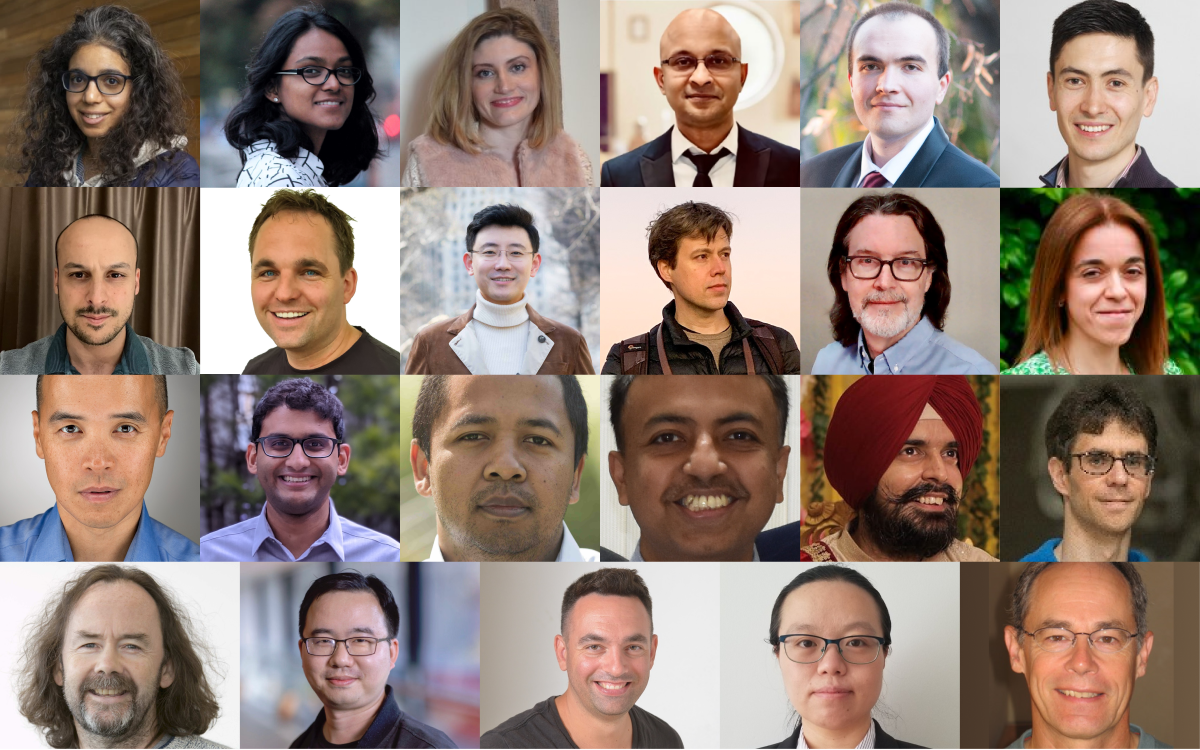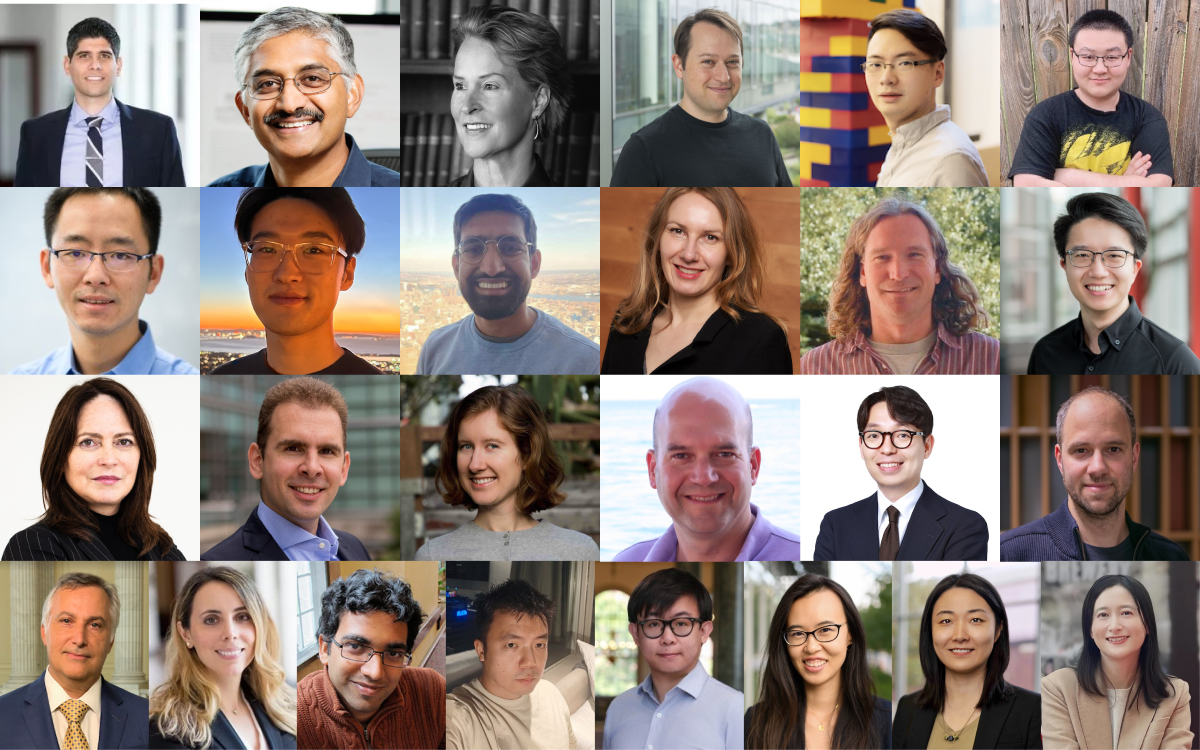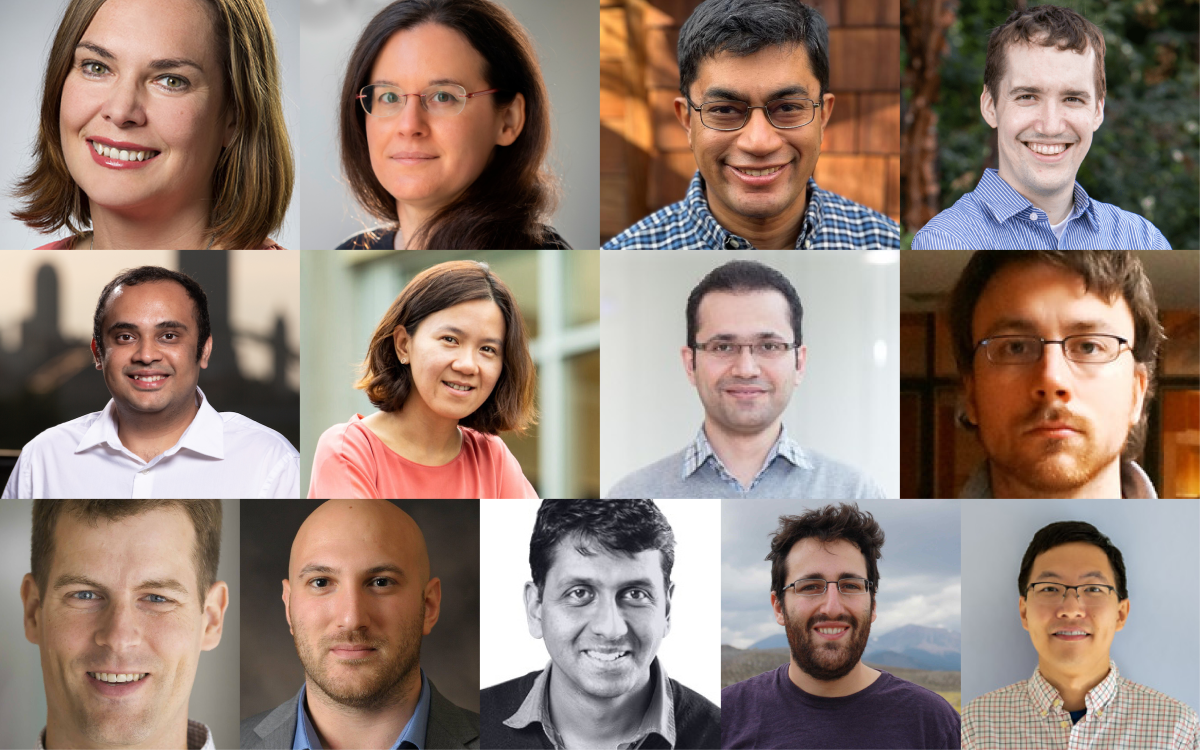Amazon Research Awards (ARA) provides unrestricted funds and AWS Promotional Credits to academic researchers investigating various research topics in multiple disciplines. This cycle, ARA received many excellent research proposals from across the world and today is publicly announcing 75 award recipients who represent 46 universities in 10 countries.
This announcement includes awards funded under five call for proposals during the fall 2024 cycle: AI for Information Security, Automated Reasoning, AWS AI, AWS Cryptography, and Sustainability. Proposals were reviewed for the quality of their scientific content and their potential to impact both the research community and society. Additionally, Amazon encourages the publication of research results, presentations of research at Amazon offices worldwide, and the release of related code under open-source licenses.
Recipients have access to more than 700 Amazon public datasets and can utilize AWS AI/ML services and tools through their AWS Promotional Credits. Recipients also are assigned an Amazon research contact who offers consultation and advice, along with opportunities to participate in Amazon events and training sessions.
“Automated Reasoning is an important area of research for Amazon, with potential applications across various features and applications to help improve security, reliability, and performance for our customers. Through the ARA program, we collaborate with leading academic researchers to explore challenges in this field,” said Robert Jones, senior principal scientist with the Cloud Automated Reasoning Group. “We were again impressed by the exceptional response to our Automated Reasoning call for proposals this year, receiving numerous high-quality submissions. Congratulations to the recipients! We're excited to support their work and partner with them as they develop new science and technology in this important area.”
“At Amazon, we believe that solving the world's toughest sustainability challenges benefits from both breakthrough scientific research and open and bold collaboration. Through programs like the Amazon Research Awards program, we aim to support academic research that could contribute to our understanding of these complex issues,” said Kommy Weldemariam, Director of Science and Innovation Sustainability. “The selected proposals represent innovative projects that we hope will help advance knowledge in this field, potentially benefiting customers, communities, and the environment.”
ARA funds proposals throughout the year in a variety of research areas. Applicants are encouraged to visit the ARA call for proposals page for more information or send an email to be notified of future open calls.
The tables below list, in alphabetical order by last name, fall 2024 cycle call-for-proposal recipients, sorted by research area.
AI for Information Security

Recipient |
University |
Research title |
Northeastern University |
Multi-Agent Reinforcement Learning Cyber Defense for Securing Cloud Computing Platforms |
|
Ludwig Maximilian University of Munich |
Improving Generative and Foundation Models Reliability via Uncertainty-awareness |
|
University Of Massachusetts Amherst |
LLM and Domain Adaptation for Attack Detection |
|
Northeastern University |
Multi-Agent Reinforcement Learning Cyber Defense for Securing Cloud Computing Platforms |
|
University of Georgia |
ContextADBench: A Comprehensive Benchmark Suite for Contextual Anomaly Detection |
Automated Reasoning

AWS AI
Recipient |
University |
Research title |
Harvard University |
LLM-Augmented Semi-Automated Proofs for Interactive Verification |
|
Georgia Institute of Technology |
Certified Inductive Generalization in Reinforcement Learning |
|
University of Surrey |
Phoebe+: An Automated-Reasoning Tool for Provable Privacy in Cryptographic Systems |
|
Stony Brook University |
Restricter: An Automatic Tool for Authoring Amazon Cedar Access Control Policies with the Principle of Least Privilege |
|
Alexandru Ioan Cuza University |
An Interactive Proof Mode for Dafny |
|
INESC-ID |
Polyglot Automated Program Repair for Infrastructure as Code |
|
Inria |
Extensible Proof Automation for Rust Program Verification in Lean using Aeneas |
|
University Of California, San Diego |
Monte Carlo Trees with Conflict Models for Proof Search |
|
University of Birmingham |
Neural Software Verification |
|
University of Cambridge |
Synthesis-based Symbolic BitVector Simplification for Lean |
|
Columbia University |
Scaling Formal Verification of Security Properties for Unmodified System Software |
|
Monash University |
Huub: Next-Gen Lazy Clause Generation |
|
University of Texas At Austin |
Synthesis of Auxiliary Variables and Invariants for Distributed Protocol Verification |
|
University of Porto |
Overcoming Barriers to the Adoption of Verification-Aware Languages |
|
University of Lille and Inria |
Resource‐Aware Conservative Static Analysis |
|
Columbia University |
Scaling Formal Verification of Security Properties for Unmodified System Software |
|
Carnegie Mellon University |
Automated Synthesis and Evaluation of Property-Based Tests |
|
University Of California, San Diego |
Discovering and Proving Critical System Properties with LLMs |
|
University of Surrey |
Phoebe+: An Automated-Reasoning Tool for Provable Privacy in Cryptographic Systems |
|
Indian Institute of Technology Kanpur |
Theorem Proving Modulo LLM |
|
University of Illinois At Urbana–Champaign |
Trustworthy LLM Systems using Formal Contracts |
|
Stony Brook University |
Restricter: An Automatic Tool for Authoring Amazon Cedar Access Control Policies with the Principle of Least Privilege |
|
Monash University |
Huub: Next-Gen Lazy Clause Generation |
|
University of New South Wales |
Path-Sensitive Typestate Analysis through Sparse Abstract Execution |
|
Brown University |
Semantics-Driven Static Analysis for the Unix/Linux Shell |
|
Stevens Institute of Technology |
Leveraging Large Language Models for Reasoning Augmented Searching on Domain-specific NoSQL Database |
|
University of California, Berkeley |
GPU-Accelerated High-Throughput SAT Sampling |

Recipient |
University |
Research title |
Emory University |
Generative AI solutions for The Spillover Effect of Fraudulent Reviews on Product Recommendations |
|
University of Illinois at Urbana–Champaign |
Fellini: Differentiable ML Compiler for Full-Graph Optimization for LLM Models |
|
California Institute of Technology |
Closed-loop Generative Machine Learning for De Novo Enzyme Discovery and Optimization |
|
Carnegie Mellon University |
Useful, Safe, and Robust Multiturn Interactions with LLMs |
|
University of California, Santa Barbara |
Cut the Crap: Advancing the Efficient Communication of Multi-Agent Systems via Spatial-Temporal Topology Design and KV Cache Sharing |
|
University of Pennsylvania |
Provable Acceleration of Diffusion Models for Modern Generative AI |
|
University of North Carolina at Chapel Hill |
Cut the Crap: Advancing the Efficient Communication of Multi-Agent Systems via Spatial-Temporal Topology Design and KV Cache Sharing |
|
University of North Carolina at Chapel Hill |
Aligning Long Videos and Language as Long-Horizon World Models |
|
Cornell University |
Market Design for Responsible Multi-agent LLMs |
|
Northwestern University |
Human-Aligned Uncertainty Quantification in High Dimensions |
|
Rice University |
Fast, Trusted AI Using the EINSUMMABLE Compiler |
|
Columbia University |
Physics-Informed Foundation Models Through Embodied Interactions |
|
Massachusetts Institute of Technology |
Understanding How LLM Agents Deviate from Human Choices |
|
University of Illinois at Urbana–Champaign |
Fellini: Differentiable ML Compiler for Full-Graph Optimization for LLM Models |
|
Cornell University |
Trustworthy extreme imaging for science using interpretable uncertainty quantification |
|
Carnegie Mellon University |
Efficient LLM Serving on Trainium via Kernel Generation |
|
Seoul National University |
Mutually Beneficial Interplay Between Selection Fairness and Context Diversity in Contextual Bandits |
|
University of Oxford |
Optimal Regularization for LLM Alignment |
|
University of California, Santa Cruz |
Verification Constrained Hardware Optimization using Intelligent Design Agentic Programming |
|
Emory University |
Generative AI solutions for The Spillover Effect of Fraudulent Reviews on Product Recommendations |
|
Northwestern University |
Human-Aligned Uncertainty Quantification in High Dimensions |
|
University of Texas at Dallas |
Optimizing RISC-V Compilers with RISC-LLM and Syntax Parsing |
|
University of North Carolina at Chapel Hill |
Aligning Long Videos and Language as Long-Horizon World Models |
|
University of Washington |
Tools for Governing AI Agent Autonomy |
|
Purdue University |
Efficient Test-time Alignment for Large Language Models and Large Multimodal Models |
|
Rutgers University-New Brunswick |
AlphaQC: An AI-powered Quantum Circuit Optimizer and Denoiser |
AWS Cryptography

Recipient |
University |
Research title |
Georgia Institute of Technology |
Quantifying Information Leakage in Searchable Encryption Protocols |
|
Graz University of Technology, Austria |
SALAD – Systematic Analysis of Lightweight Ascon-based Designs |
|
University of California, Berkeley |
Obfuscation, Proof Systems, and Secure Computation: A Research Program on Cryptography at the Simons Institute for the Theory of Computing |
|
Georgia Institute of Technology |
Analyzing Chat Encryption for Group Messaging |
|
Carnegie Mellon |
Large Scale Multiparty Silent Preprocessing for MPC from LPN |
|
University of Washington |
Large Scale Multiparty Silent Preprocessing for MPC from LPN |
|
KTH Royal Institute of Technology |
Trustworthy Automatic Verification of Side-Channel Countermeasures for Binary Cryptographic Programs using the HoIBA libary |
|
KTH Royal Institute of Technology |
Trustworthy Automatic Verification of Side-Channel Countermeasures for Binary Cryptographic Programs using the HoIBA libary |
|
University of Michigan, Ann Arbor |
Practical Third-Generation FHE and Bootstrapping |
|
Carnegie Mellon University |
Scale-Out FHE LLMs on GPUs |
|
Massachusetts Institute of Technology |
Can Quantum Computers (Really) Factor? |
|
Northeastern University |
Obfuscation, Proof Systems, and Secure Computation: A Research Program on Cryptography at the Simons Institute for the Theory of Computing |
|
University Of Texas At Austin |
Fast Private Information Retrieval and More using Homomorphic Encryption |
Sustainability

Recipient |
University |
Research title |
Max Planck Institute |
Forest-Blossom (Flossom): A New Framework for Sustaining Forest Biodiversity Through Outcome-Driven Remote Sensing Monitoring |
|
University of Illinois at Urbana–Champaign |
Foundation Model Enabled Earth’s Ecosystem Monitoring |
|
University of Chicago |
AI-powered Tools that Enable Engineers to Make & Re-make Sustainable Hardware |
|
Max Planck Institute |
Forest-Blossom (Flossom): A New Framework for Sustaining Forest Biodiversity Through Outcome-Driven Remote Sensing Monitoring |



















